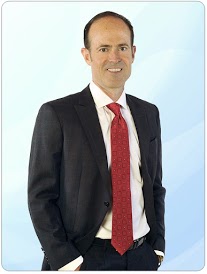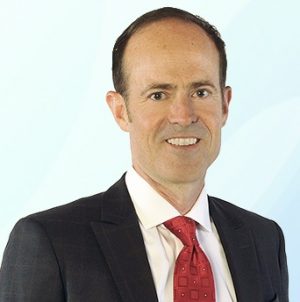| October 2023 | Maximixe your HSA e-Newsletter | Vol. 19, Issue 12 |
How To Find the Best Doctors – A Guide for Health Sharing Members (And Everybody Else!)
At HSA for America, promoting health care freedom is one of our core values.
We believe in our clients, and we believe that informed patients can make much better decisions regarding their own health care and the quality of doctors and providers in their own communities than a bureaucrat in a managed care insurance company hundreds of miles away.
Not all doctors are the same, of course. A great doctor with good listening skills can make a massive difference.
So when you have a difficult or complicated medical situation, you want the freedom to select the best.
The Health Sharing Advantage
That’s where health sharing has a huge built-in advantage over the HMOs and PPOs available via the Obamacare exchanges: Most health share plans give you much more freedom to choose your own doctor.
You aren’t confined to your insurance company’s list of approved providers—which are in actuality too often just a list of low-bidders who offer your insurance company the lowest prices in town.
Health sharing allows you to use your plan’s benefits with any doctor, clinic, or hospital you believe will give you the best chance of the most favorable possible outcome for your condition.
But with great power comes great responsibility: It falls on you to make the ultimate decision about which doctors are right for you and your family.
When it comes to making this important choice, there are several factors to consider, including doctor’s credentials and experience, independence, reputation, and age.
Credentials
Verify the credentials of the doctors you’re considering. Ensure they are board-certified in their respective specialties.
Doctors typically list their credentials on their practice websites and on their business cards. You can check a doctor’s credentials through websites like the American Board of Medical Specialties or your state’s medical board.
You can also use DocInfo.org to find doctors in your area with the credentials you seek. .
Need help wading through the alphabet soup? Here’s a handy list of healthcare practitioner credentials.
Many of the credentialing organizations will provide a referral service on their websites. Enter your city or Zip code and they’ll give you a list of practicing doctors with active credentials in your area.
Note: These sites will give you accurate information about which doctors have the necessary credentials in the specialty you’re looking for.
But they won’t tell you much about the quality and reputation of those doctors relative to their peers.
You’ll need to dig deeper for that.
Use Your Health Sharing Plans Concierge Desk
Some health sharing plans have a “concierge” desk which can help you with a variety of issues – including referring you to a quality doctor.
The experts on the concierge desk have a wealth of information about doctors, hospitals, pricing, and outcomes. They also track other members’ experiences with each doctor.
These are insights that are very difficult to get acting on your own.
If other patients have positive experience with a given doctor, with few or no complications, your concierge desk is likely to include that doctor in their recommendations.
If a doctor has a pattern of poor patient satisfaction, or there are more than the usual expected number of cases with complications requiring follow-up, that costs the health share plan money. And they are not likely to continue recommending that doctor to their patients.
So there’s a built-in quality control mechanism when you ask your health share plan’s concierge desk for recommendations.
Consider Independent Doctors
Consider using an independent doctor, or doctor in a small independent practice.
Don’t get me wrong… there are wonderful doctors working in all kinds of contexts, including in large healthcare systems.
But overall, we’ve found that independent doctors provide a much better overall healthcare experience.
Independent doctors are not tied to a specific hospital or healthcare network, which means they have more flexibility in their practice. Here are some key benefits of choosing an independent doctor.
Less opportunity for conflicts of interest
Independent doctors are not influenced by outside pressure tied to referrals, tests, or procedures, potentially resulting in more cost-effective and appropriate care.
More Healthcare Freedom and Privacy
When you use a doctor in a large hospital system, your medical records are stored in a database accessible to potentially hundreds of people.
Not only does this represent more opportunity for a data leak or other loss of privacy – it can also unduly influence your doctor’s recommendations to you.
In recent years we’ve seen increasing efforts from lawmakers to censor and muzzle doctors and interfere in the doctor-patient relationship. They even threaten doctors’ licenses and livelihoods for speaking frankly to patients about some alternative medical treatments and risks from vaccines.
An independent doctor is more likely to be able to give you full information about your healthcare options and available treatments—without the interference of government or corporate censors.
Doctors’ Freedom of Speech is Under Assault. That’s Wrong!
Consider Age and Experience
Experience matters – especially when your medical situation is complex or difficult to diagnose. So it’s good if your doctor has a number of years of experience in your specialty.
However, studies also show that physician skills and effectiveness also deteriorate as they get older.
A 2017 study found that patients of older doctors had higher mortality rates than patients of younger doctors at the same facility.
The age effects effectively vanish when older doctors are still working full-time.
So if you do choose an older doctor for their valuable experience, consider choosing one who is still fully engaged in their practice, who is not semi-retired, but still has a full patient load.
Get Referrals
If you already have a family doctor or primary primary care physician and you need a referral to a specialist, your PCP can be an excellent source.
Good doctors know other good doctors. And if their patients have a negative experience with one of the specialists, they refer their patients to, they’ll get an earful at their next appointment!
You can also get referrals from other patients who have a similar medical situation. Ask your friends, family, and colleagues who have the same or similar conditions as you.
If you’re looking for a good pediatrician, ask your friends and colleagues who have children the same age as yours, or just a little older.
Read Patient Reviews
Online reviews can also be a valuable source of information—especially from independent review sites.
Try looking up doctors on websites like Zocdoc.com, Healthgrades.com, and RateMDs.com.
Do They Take Your Plan?
People in HMOs and PPOs have to worry about whether their doctor is in their approved network of care providers, and whether those doctors take their plan or not.
Fortunately, as a health share member, you usually don’t have that problem.
You can present as a cash payer, and ask for the cash discount. Your health sharing plan can work with any qualified provider.
Pricing
While price isn’t everything, it should be a consideration—even when you have a health sharing plan.
There are two reasons for this:
First, every health sharing plan has an initial unshareable amount (sometimes called a member responsibility amount), which functions similarly to a deductible.
You must pay this amount out of pocket before your plan’s sharing benefits will kick in.
So if you don’t expect to meet your IUA this year, you benefit from any savings you can get from shopping around to find a reasonably priced provider.
Second, many health sharing plans will share costs up to a reasonable and customary amount for that particular medical service in your area.
So if you choose the priciest provider in town, you may have to cover some of the excess out of your own pocket, depending on your plan.
A great doctor is worth paying a little extra for. But you do need to be aware of your IUA and your plan’s sharing policies when it comes to higher-priced providers.
Conclusion
Remember, as a health sharing plan member rather than an insurance company customer, you are technically a cash payer.
You are in control. You decide how to direct your healthcare dollars.
Not some desk jockey in an HMO in another state.
And that’s the way it ought to be.
Click here to schedule an appointment, or call 800-913-0172 to get started.
To your health and wealth,

Wiley P. Long, III
President - HSA for America

The HSA for America Maximize Your HSA Newsletter is published monthly and emailed to subscribers at no charge. Subscribe now to stay on top of the critical information you need to know about health insurance, healthshare plans and managing your finances to achieve financial security.


Available Plans | HSA Info | Healthshare Info | FAQS | Blog | About Us | Contact Us | Agents Needed
1001-A E. Harmony Rd #519 Fort Collins, CO 80525
Telephone: 800-913-0172
[email protected] | © 2024 – All Rights Reserved
Disclaimer: All information on this website is relayed to the best of the Company’s ability, but does not guarantee accuracy. Information may be out of date. The content provided on this site is intended for informational purposes only and does not guarantee price or coverage. This site is not intended as, and does not constitute, accounting, legal, tax, and/or other professional advice. Determination of actual price is subject to Carriers.


